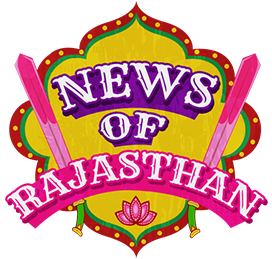

As the SBC reservation was struck down by the Rajasthan High court last week, a few self-proclaimed leaders like Kirori Singh Bainsla fuelled the masses against Rajasthan government. The innocent members of the Gurjar community, led by Himmat Singh Gujjar and Kirori Singh Bainsla, braced up to restart their agitation for 5% additional reservation in educational institutes and government jobs. Sensing the ill intentions of the ‘so-called’ well-wishers, Rajasthan CM Vasundhara Raje assured the people they would resolve this issue in a peaceful manner. Raje government plans to reopen this case in the Supreme Court for Gurjars, seeing that this is the fair solution to this problem.
Nearly all the members of Gurjar community support the government in this drive, except for a few notorious elements that want to derive political benefits from social outbursts.

Why Do Gurjars Support CM Raje’s Stand?
While Himmat Singh and Bainsla may have a short-term memory loss, we clearly remember that it was CM Vasundhara Raje who advocated Gurjar rights back in 2007. Considering the mustiness of the Gujjar communities, Raje government appointed the Chopra community to represent Gurjar rights.
In 2009, Raje government recognised 4 communities, mainly Gujjars, Raika (Banjaras or nomadic tribes), Rebari and Gadriya Luhars under ‘Special Backward Classes’. Accordingly, they demanded special rights and reservations for the community. Due to Raje government’s initiatives, the Gurjjars were granted 56% reservation in SBC category.
In 2015, Rajasthan government considered the new reservation pattern while appointed Gurjar communities at various positions. Accordingly, they were granted admissions in different institutes, in accordance with the law.
Between 2010 to 2016, around 3010 candidates from SBC community (mainly Gujjars) were recruited in government jobs in 31 different departments.
Raje’s Social Welfare Schemes Involve Best Interests of the Gurjar Communities
To uplift social standards of living, Raje government announced the Devnarayan scheme to ensure all-round development of the Gujjar communities. In her previous tenure, CM Raje allotted a budget of Rs. 100 crores for Gurjar welfare. As per the statistics, Rajasthan government had spent around 636.26 crores on Devnarayan and parallel schemes under it.
Under Devnarayan Scheme, Raje government had achieved the following targets:
- 5,61,348 high-school students received scholarships worth Rs. 33.87 crore
- 6090 students were granted funds (up to Rs. 35.18 crores) for enrolment in various educational institutions under Gurukul Yojana,
- 4819 girl children received two-wheelers for transportation (total expenditure on the vehicles was calculated as Rs. 20.16 crores),
- 2,87,904 College students (from Intermediate up to PhD) were granted scholarships worth Rs. 249.74 crores for pursuing higher studies.
Moreover, Raje government had spent a colossal amount on construction of hostels, colleges, schools and universities in various districts.
- 148 Crores were allotted for construction of 2 universities, 9 residential colleges and 41 hostels. 40 projects have been completed successfully.
- 6 ITIs worth Rs. 22.32 crores are under construction in Jhalrapatan, Baansoor, Saipao, Sapotra, Khandaar and Naadauti (areas having dense Gujjar population),
- 207 public health clinics worth Rs. 37.25 crores were constructed at village and district levels.
- To link remote Gurjar villages, Rajasthan government had spent Rs. 172.86 crores on Graamin Gaurav Path and Rs. 265.83 crores on national highways.
Rajasthan government had repealed 745 pending cases against Gurjars who were involved in public protests earlier.
Seeing the constant efforts put in by Raje government in this direction, we’re positive that government is committed to Gujjar welfare. Even the Gujjars support Raje government’s move of filing a petition in the SC since it’s an appropriate solution to this problem. Although we can’t predict the outcome of the court case, but we’re positive that social welfare schemes run by Raje government will surely promote the Gujjar communities in different spheres of life.





